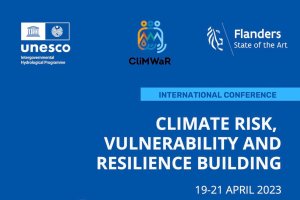
According to the latest IPCC’s 6th Assessment Report (August 2021), “climate change is intensifying the water cycle”, which will bring more associated flooding and drought in many regions. In the face of the extreme flooding, drought and fire events that 2021 and 2022 brought so far, responsible for casualties and extensive material damage worldwide, it is becoming increasingly evident that climate uncertainty is hindering the task of developing adequate adaptation policies.
The Conference aims at bridging the gap between science, policy and decision-making to support effective resilience building. Its focus goes beyond vulnerability and climate risk assessments, addressing challenges in fast-tracking and scaling up innovative adaptation solutions, climate funding, and the emerging role of citizen participation and open science. This solution-oriented event will follow up on the discussions held at the 2023 United Nations Water Conference, by linking scientists, practitioners and decision-makers to support the development of resilient water management policies.
The main objectives of the Conference are to:
- Introduce participants to the technical and practical impacts of climate change enhanced hydro-climatic hazards, with a special emphasis on droughts and floods, though a presentation of novel methodologies applied in worldwide case studies
- Highlight the critical role of citizen science and open science for effective adaptation to the impacts of those hazards
- Bridging the gap between the scientific community and decision-makers from different levels in climate-risk management issues
- Provide the necessary tools to leverage institutional capacity needed to support adaptation and resilience building
- Follow up on the discussions of the UN Water Conference, to be held in March 2023, regarding hydro-climatic resilience
- Contribute to the implementation of the Strategic Plan of the 9th Phase of IHP and Open Science Recommendation
